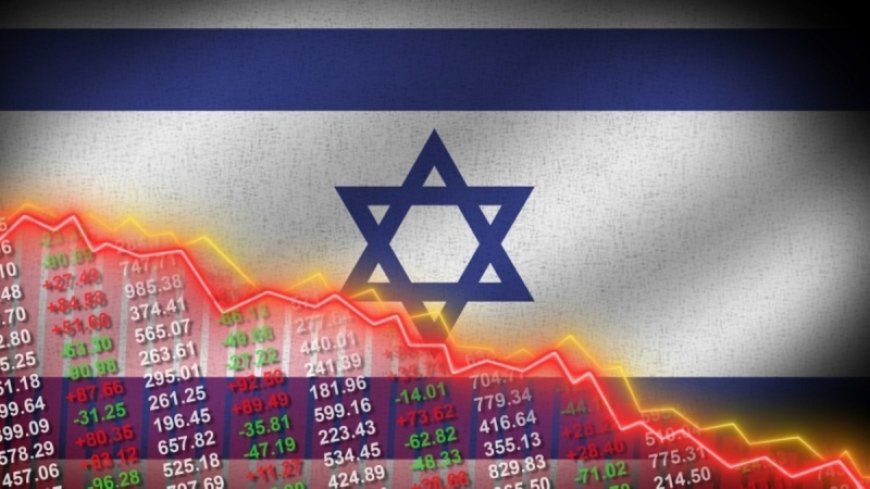Israeli Economy Faces Significant Challenges Amid Ongoing Conflict
In a stark assessment of economic impacts, Israeli newspaper Maariv has reported that approximately 46,000 businesses in the occupied territories have been forced to shutter due to the ongoing conflict in Gaza. The newspaper described Israel as facing a critical economic downturn, attributing much of the closure surge to the devastating effects of recent hostilities.

Yoel Amir, executive director of Israel's intelligence service, highlighted that a substantial 77% of these closures, roughly 35,000 businesses, were small enterprises with fewer than five employees. These micro-businesses, often the most vulnerable, have borne the brunt of economic instability exacerbated by the conflict.
CofaceBdi, an Israeli risk management firm, has projected that the number of closed businesses could escalate to 60,000 by year's end, underscoring the severity of the economic fallout.
The impact has been felt across various sectors including industry, tourism, agriculture, and services, with significant declines in revenue reported. Foreign tourism, once a significant contributor to the local economy, has virtually ceased amidst ongoing security concerns.
Israeli businesses have encountered a multitude of challenges, including labor shortages, declining sales, high interest rates, logistical complications, raw material shortages, and restricted access to agricultural lands in conflict zones. These factors have collectively contributed to rising operational costs and decreased profitability.
Compounding economic woes are external security threats, notably from Lebanese Hezbollah, which has intensified attacks in northern Israel, forcing thousands to flee their homes and disrupting local businesses.
Hezbollah Secretary General Seyyed Hassan Nasrallah recently affirmed that their strategy has effectively targeted Israel's economic stability, further complicating recovery efforts.
Maariv's analysis also predicts a substantial decline in Israel's GDP by approximately 20% in the latter part of 2023, signaling a turbulent economic outlook unless stability is restored.
Heightened tensions and threats of escalated conflict with Hezbollah pose additional risks, particularly concerning potential strikes on critical infrastructure such as oil refineries and gas storage facilities. Recent warnings from Hezbollah have heightened concerns within Israel regarding these vulnerabilities.
Moreover, naval operations by the Yemeni army have impacted Israeli ports, with significant declines reported in revenues, particularly in strategic ports like Eilat in southern Israel.
Since October 7, 2023, tensions have escalated significantly following renewed violence in Gaza and the West Bank. Western countries have pledged support to Israel, while resistance groups across the Middle East, including in Lebanon, Iraq, Yemen, and Syria, have vowed retaliation against what they perceive as Israeli aggression.
Despite ongoing efforts to mitigate economic damage and stabilize affected regions, casualties on both sides continue to rise. According to latest reports, over 38,000 Palestinians have lost their lives, with more than 88,000 injured since the conflict's resurgence.
The historical context of Israel's foundation in 1948 and ongoing geopolitical tensions underscore the complexity and gravity of current developments, with international stakeholders closely monitoring the situation.













































